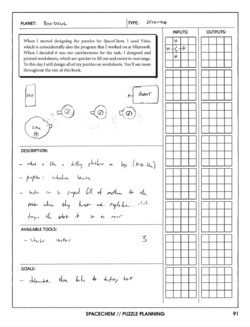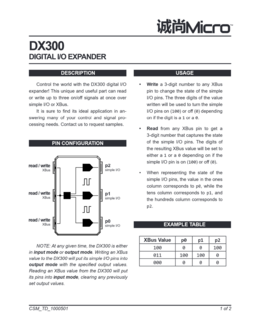User:Thijshijsijsjss/Gossamery/Designer Notes: Difference between revisions
(Create section for zach barthes interview with sparse notes) |
(Add some (non-final) words on ep84/85) |
||
| Line 9: | Line 9: | ||
* Listen to it [https://www.idlethumbs.net/designernotes/episodes/zach-barth-part-1 here (part 1)] and [https://www.idlethumbs.net/designernotes/episodes/zach-barth-part-2 here (part 2)] | * Listen to it [https://www.idlethumbs.net/designernotes/episodes/zach-barth-part-1 here (part 1)] and [https://www.idlethumbs.net/designernotes/episodes/zach-barth-part-2 here (part 2)] | ||
Zach Barthes is a game designer known for founding [https://zachtronics.itch.io/zach-like Zachtronics], who are in turn known for games like SpaceChem, TIS-100, Infinifactory and Shenzhen I/O. These are all 'puzzle games', though Zach barth would stress that they really aren't: they are constraint games with an infinite solution space. | |||
Barth, I find, is a very nice person to hear talk. He's very clearly passionate about the games he makes, and he's quick to acknowledge his shortcomings as a designer. This is funny, as he did put out a book on game design: [https://www.zachtronics.com/zach-like/ ZACH-LIKE] (more so a compilation of behind-the-scenes documents from Zachtronics). I really like the worksheets that are used to design the puzzles. | |||
Shenzhen I/O's manual | In this episode, Johnson and Barth talk about modding, open sourcing game code and, cruacially, manuals. Zach jokingly states it's a way for them to avoid tutorialising their games. However, there seems to be more to it. For example, Shenzhen I/O's manual ([https://github.com/JonathanLemke/shenzhen-io-translate/blob/master/SHENZHEN%20IO%20Manual%20(English).pdf here on GitHub)]) is diegetic, contributing to the narrative (it even starts with a visa application form). Such a tone can really lift a manual from a chore to an extension of the experience (similar to [[User:Thijshijsijsjss/Gossamery/KTaNE|KTaNE's]]). Johnson calls this: | ||
<blockquote> | |||
[...] an aesthetic experience that I thought would've disappeared at this point | |||
</blockquote> | |||
{|align=center | |||
|[[File:Zach-like-spacechem-worksheet.png|250px|thumb|SpaceChem puzzle worksheet]] | |||
|[[File:Shenzhen-io-manual-page.png|255px|thumb|Manual page from Shenzhen I/O]] | |||
|} | |||
Latest revision as of 15:33, 15 October 2024
- Listen to it here
Designer Notes is 'a podcast on why we make' in which Soren Johnson (known for being the lead designer on Civilisation IV at Firaxis and founding indie studio Mohawk Games) interviews various people from the games industry.
I've listened to many episodes of this podcast. I find it is a great place for finding new insights, getting inspired, and grounding the game making experience. Here, I will highlight some key episodes for me.
Episode 84 - 85: Zach Barth
- Listened to: October 2024
- Listen to it here (part 1) and here (part 2)
Zach Barthes is a game designer known for founding Zachtronics, who are in turn known for games like SpaceChem, TIS-100, Infinifactory and Shenzhen I/O. These are all 'puzzle games', though Zach barth would stress that they really aren't: they are constraint games with an infinite solution space.
Barth, I find, is a very nice person to hear talk. He's very clearly passionate about the games he makes, and he's quick to acknowledge his shortcomings as a designer. This is funny, as he did put out a book on game design: ZACH-LIKE (more so a compilation of behind-the-scenes documents from Zachtronics). I really like the worksheets that are used to design the puzzles.
In this episode, Johnson and Barth talk about modding, open sourcing game code and, cruacially, manuals. Zach jokingly states it's a way for them to avoid tutorialising their games. However, there seems to be more to it. For example, Shenzhen I/O's manual (here on GitHub)) is diegetic, contributing to the narrative (it even starts with a visa application form). Such a tone can really lift a manual from a chore to an extension of the experience (similar to KTaNE's). Johnson calls this:
[...] an aesthetic experience that I thought would've disappeared at this point


